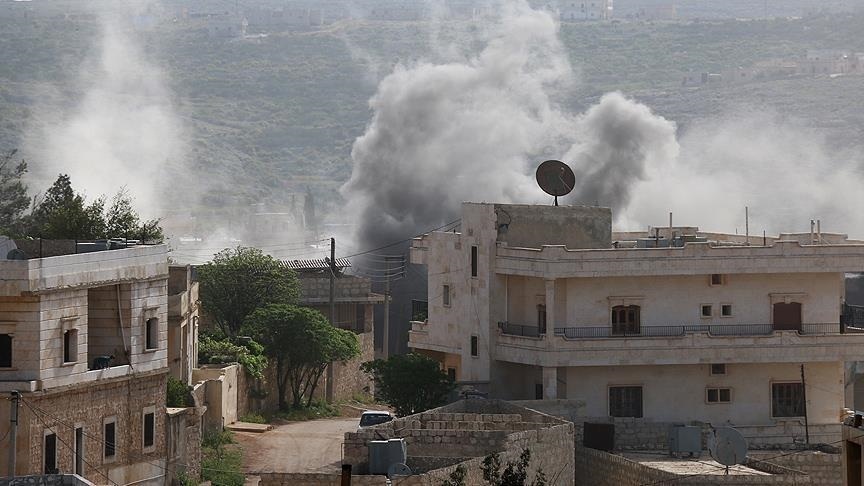An Israeli drone strike near Lebanon’s capital, Beirut, has killed at least one person and injured three others, according to Lebanon’s Ministry of Public Health.
The attack, which struck a vehicle on a busy highway in Khaldeh, just 12 kilometers (8 miles) south of the capital, occurred during the evening rush hour of Thursday, July 3, 2025, escalating fears of a renewed military confrontation between Israel and Hezbollah.
The Israeli military claimed responsibility for the strike, stating that it was targeting “military sites and weapons depots” in the area.
However, Lebanese officials and local media have described the attack as a blatant breach of the fragile ceasefire agreement that has been in place since November 2024.
No identities have yet been released for the casualties, but the strike’s location—so close to the capital and during peak civilian traffic—has sent a shockwave through the country.
Reporting from Beirut, Al Jazeera’s Zeina Khodr described the attack as part of a growing pattern.
“This air raid happened while many people were heading from Beirut to southern Lebanon,” she said.
“It’s yet another indication that Israel is acting with little restraint.
“The Lebanese government wants these attacks to stop, but its influence is limited.
“Hezbollah is in a delicate position, any response could provoke devastating retaliation from Israel.”
Later that same day, Israel launched a series of additional airstrikes across southern Lebanon, with heavy bombing reported near Zawtar al-Charqiyeh, on the outskirts of Nabatieh.
Lebanon’s state-run National News Agency confirmed multiple bombardments in that region.
Since the truce in November, these kinds of Israeli operations have become increasingly frequent.
Lebanon’s leadership has repeatedly condemned the strikes and appealed to the United States and France, the two main brokers of the ceasefire, to intervene.
Yet, international diplomatic pressure on Israel remains minimal, and calls for restraint have gone largely unheeded.
The ceasefire, backed by United Nations Security Council Resolution 1701, ended a major Israeli offensive that began in September 2024.
That operation, which Israel said targeted Hezbollah military infrastructure, resulted in the widespread destruction of southern Lebanon.
It also led to the assassination of key Hezbollah leaders, including, reportedly, the group’s longtime chief, Hassan Nasrallah.
In theory, the truce required Hezbollah to pull back its fighters north of the Litani River—about 30 kilometers (20 miles) from the Israeli border.
In practice, however, Israel has maintained a military presence in southern Lebanon and continued periodic strikes across Lebanese territory, often without immediate retaliation from Hezbollah.
Hezbollah has justified its limited response by citing strategic patience, indicating it is allowing the Lebanese state to handle the violations through diplomatic channels.
However, that patience may be wearing thin.
A recent drone strike in Khaldeh is the closest such attack to Beirut in months.
It comes amid reports of a U.S.-backed proposal that would see Hezbollah disarm in exchange for a complete Israeli withdrawal from Lebanese territory and a halt to airstrikes.
But Hezbollah appears unwilling to entertain such an offer.
In a defiant statement, the group’s Secretary-General Naim Qassem made clear that any suggestion of giving up weapons under pressure from Israel is off the table.
“We are a people who will not be humiliated,” Qassem said.
“We will not relinquish our land, our weapons, or our dignity to the Israeli enemy. And we will not be coerced into surrender.”
Qassem also warned that Hezbollah’s tolerance for Israeli aggression was not limitless.
“Our patience in giving space for the Lebanese state to resolve these violations diplomatically will not last forever.”
Still, analysts question whether Hezbollah is in any position to escalate.
The group suffered major setbacks in last year’s conflict, losing senior leaders, command centers, and crucial public support after Israeli bombings flattened civilian neighborhoods in its strongholds.
With the Lebanese economy in crisis, a fractured political system, and millions still reeling from the destruction of 2024, the appetite for another full-scale war appears limited on all sides.
However, the continued strikes, now reaching as far as the outskirts of Beirut, could tip that fragile balance.
For now, Lebanon remains in a precarious state, its sovereignty under threat, its people in fear, and its most powerful armed faction at a crossroads between strategic restraint and open confrontation.



